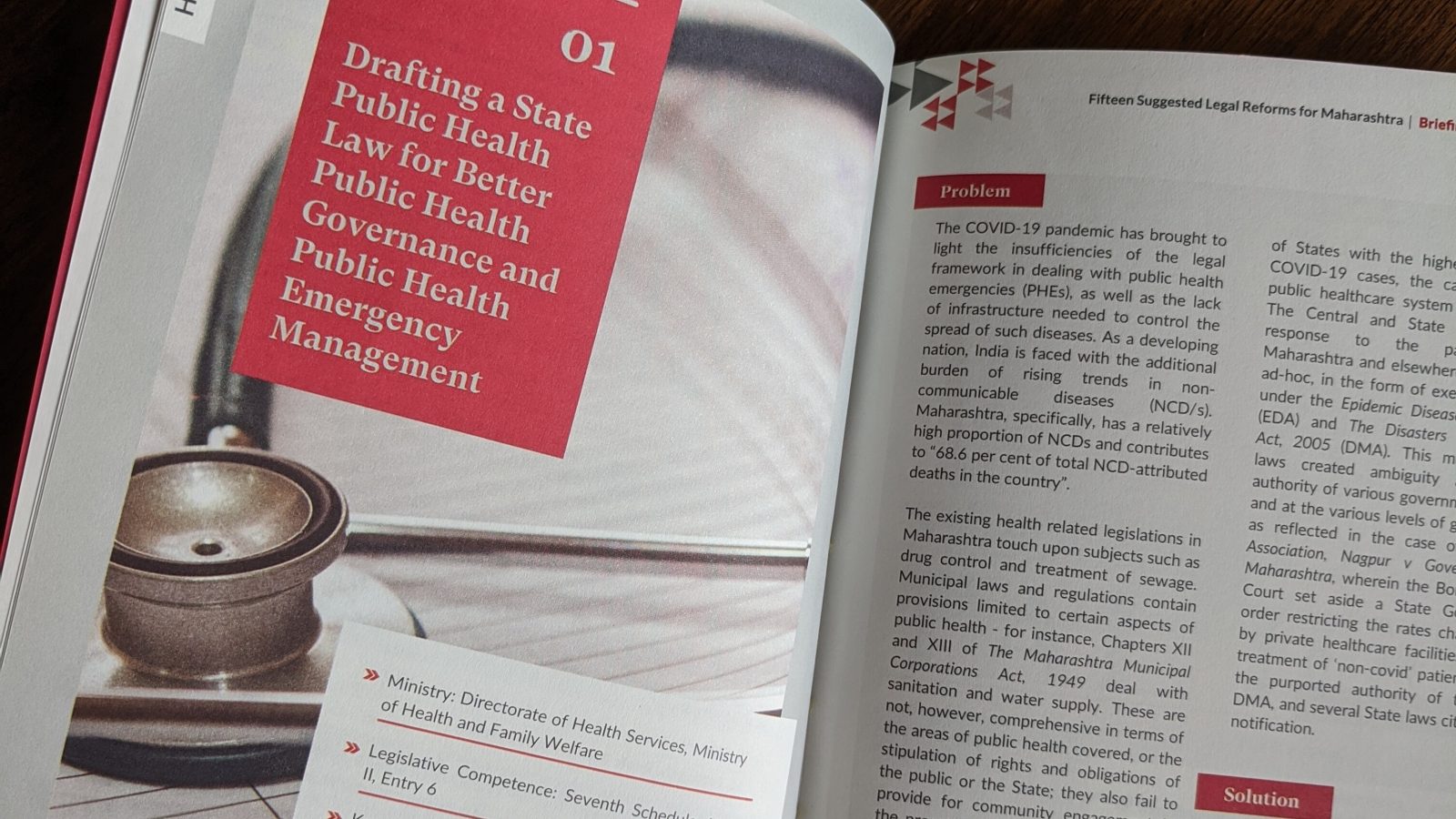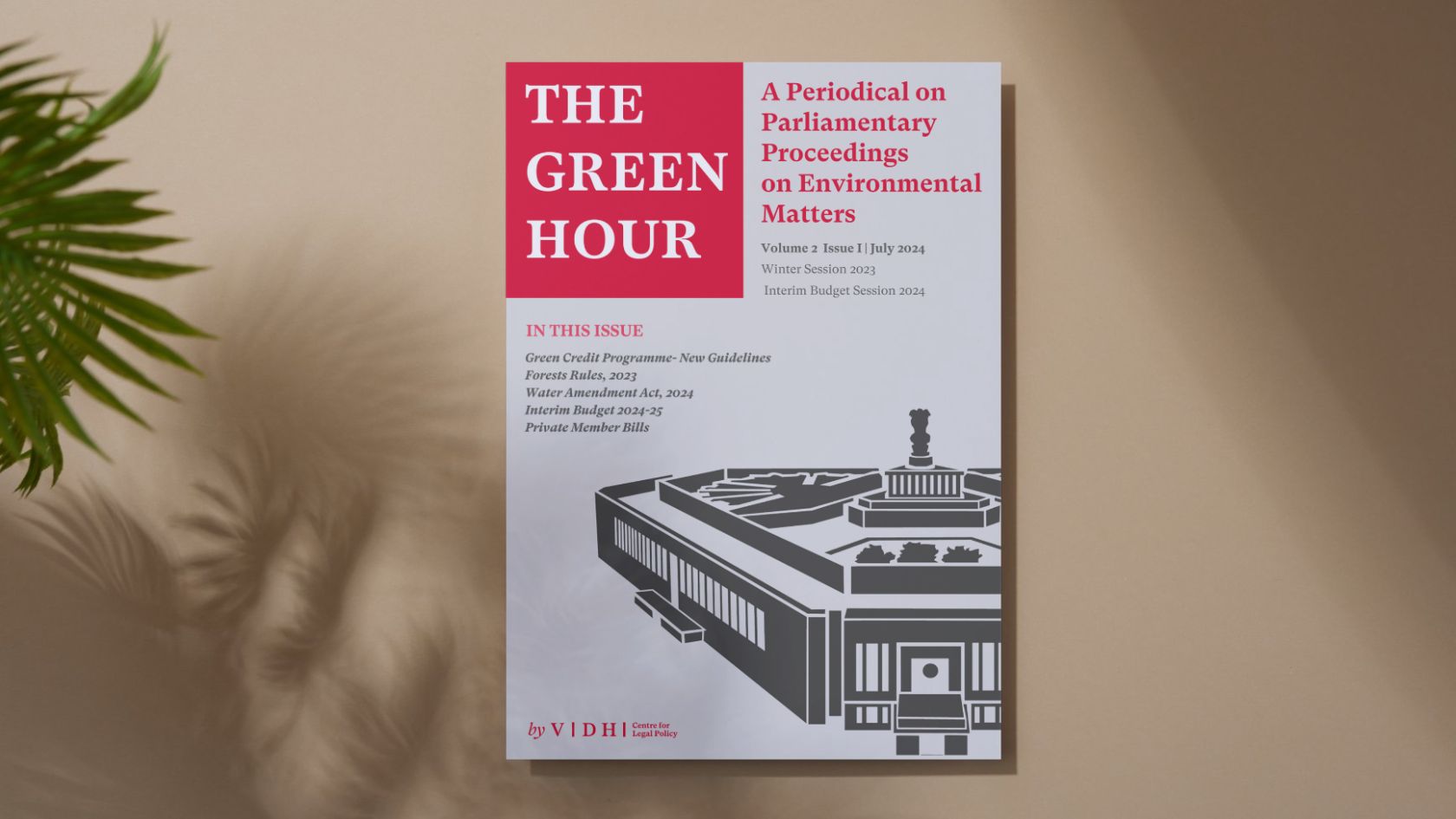
Briefing Book for 2021: Fifteen Suggested Legal Reforms for Maharashtra
Summary: In 2021, we focus on the core areas that were affected by the onset of COVID-19. The pandemic has taught us the importance of our community and systems and how they might be enhanced to deal with similar situations in the future. The suggested reforms focus on how we as a community can learn from the pandemic and strengthen systems for the citizens of Maharashtra.
The COVID-19 pandemic changed how governance structures will interact with the community and environment around them permanently. While frontline workers and the government worked hard to ease the crisis, archaic laws that deterred their efficiency were also brought to our notice. This prompted governments to amend the legal framework for health systems, labourers, and industries. The pandemic reminded us that an efficient system requires both a prompt redressal of pressing issues and a periodic evaluation of laws to ensure that they remain dynamic.
Through the COVID-19 pandemic, the larger role of the State Government was underlined. Maharashtra is the second most populated state in the country and the largest contributor to the country’s GDP. Keeping in mind Maharashtra’s important position, the need for a conversation on legal reform in the State is imperative. In 2020, Vidhi decided to expand further and opened a Mumbai office to address legal reform in Maharashtra (Vidhi Maharashtra). With this vision, as its first initiative, Vidhi Maharashtra has published this Briefing Book on Fifteen Suggested Legal Reforms for Maharashtra. The Briefing Book’s mainstay is legal issues that have arisen during the pandemic and remain unaddressed.
Maharashtra alone accounted for nearly one-third of India’s total COVID-19 cases, and the pandemic brought us close to issues of governance that affect us the most. From large issues of health and the environment to core issues of labour and education we have seen several fault lines in our systems. Change was seen through courts becoming virtual and Maharashtra climbing up to Rank 2 in the Innovation Index. However, the role of third tier governance became more imperative and scope for change widened in this regard. We hope that the ideas for legal reform presented here will form part of public debate, academic discussion and civil society engagement leading eventually to stronger communities based on strengthened systems. Our aim, as always, remains better laws through better governance.



